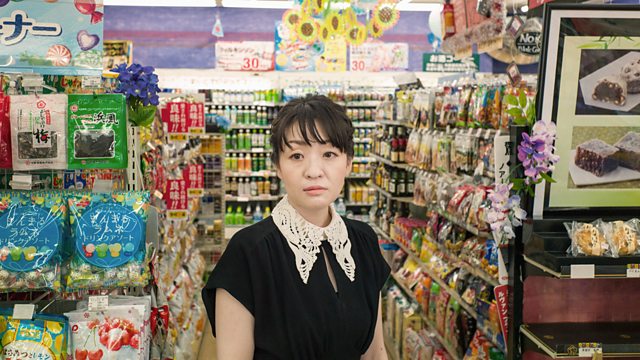The ‘Convenience store woman’ effect: mundanity in a modern world
What are the first things you think about when you hear the term ‘Convenience Store’? Nothing special. A simple, ordinary place one would go to pick up a couple items off the shelf – like a snack, a drink, or a newspaper. In general, convenience stores are considered nothing but a place of convenience, an almost daily yet mundane place packed in between the busy schedule that is the human life. They act as intermediaries sandwiched within our work life, simplified to serve the purpose of a break from the outside world. It is also a place that is lost in the crowd amongst the plethora of other stores that surround it. However, it still remains an essential piece in one’s ordinary routine. So, if I were to ask you what convenience stores mean to you, how would you respond?
This notion is brought to heart by author Sayaka Murata, where she begs to question what a convenience store means to an individual, through her debut novel (unsurprisingly named) Convenience Store Woman. Murata’s approach towards one’s daily life is unique, inspiring and eye-opening, as she uses her ability as an author to signify the subtleties of small retail businesses and how they stand as a metaphor for the mundanity that exists within an ever-changing society.
Unlike the name of the novel, Murata’s story challenges the ‘convenient’ conventions established by society, as it follows Keiko Furukawa, a socially awkward woman in her thirties who finds comfort working at the same convenience store for 18 years. Throughout the novel, Murata involves social commentary surrounding Japanese norms and traditions, with a large emphasis on normative female standards at certain stages of their lives, embodied by the main character in the story. From the outside looking in, it may seem peculiar to work at any place for an extended period of time, nonetheless at a convenience store. However I think we, as members of the public, alongside Murata, agree with the notion of convenience stores as simply one of temperance, and how people use it for their part-time employment whilst actively involved in other objectives of life, such as education or seeking a full-time job.
By integrating a character with an unorthodox lifestyle at the core of Murata’s novel, it inevitably challenges what society deems as normal and acceptable
However, Murata flips this idea on its head, as Keiko finds solace working within the convenience store for many years. The temporal ‘objective’ view of the job is contrasted with Keiko’s permanence and stationary attitudes as a store worker, in which she has dedicated her life around. Her dedication is unparalleled, as she recognises every subtle detail about the store to the point of seeming like the world’s most specialised convenience store worker. By integrating a character with an unorthodox lifestyle at the core of Murata’s novel, it inevitably challenges what society deems as normal and acceptable, especially by using the labour force as a driver for social criticisms.
The motive that stood out to me is not the main character’s identity, but rather how other characters Murata introduces throughout the story responds to Keiko’s lifestyle. Her close relatives and friends always appear hesitant and disproving towards her, to the point of establishing a superiority complex when comparing their ways of life. Since Keiko is consumed by her workaholic lifestyle as a service worker, her priorities towards natural and social tendencies are side-lined, affecting opportunities of marriage and climbing the employment ladder. Murata emphasises the detriment of society, as middle-aged Keiko is subjected to the toxicities of Japanese culture and social expectations; a ‘woman of her age’ should be married by now, or moving on to ‘greater things’.
Keiko’s rejection of societal standard teaches readers that despite normative social standards, people should seek their own path for individual liberties and freedom of expression.
However, Keiko’s story in the novel is one of deception, as she fakes a relationship with a co-worker in order for the societal pressures to vanish from her life, so she can return her fixed routine adjusted for her job’s demands. Murata makes Keiko’s character more individualistic, as the story progresses, as she slowly realises that conformity into the ideals established by the Japanese community isn’t the lifestyle she desires. Therefore, Keiko’s rejection of societal standard teaches readers that despite normative social standards, people should seek their own path for individual liberties and freedom of expression. Rather than submission into societal ideals, the goal of personal satisfaction and desire should be at the forefront of one’s personality, and shouldn’t have to sacrifice their character to please others.
Overall, the ‘convenience store woman’ effect is understanding the complexities of personal attainment, and how social environments can help benefit or hinder a person’s approach to life. The classification of Sayaka Murata’s main character as a static and mundane individual reflects the world’s need to slow down and enjoy the subtleties of life, similar to the care and precision Keiko has towards her job.
Sayaka Murata’s debut novel is acclaimed to be a comedic story, yet is able to integrate a serious undertone in challenging conventions, using the pressure of Japanese conventions as a metaphor for the wider issues of societal impact on an individual’s personality and attitudes towards contentment.

Comments